SECONDARY NEWS
From the Assistant Principal
Miss Kim Bailey
kbailey@arm.catholic.edu.au
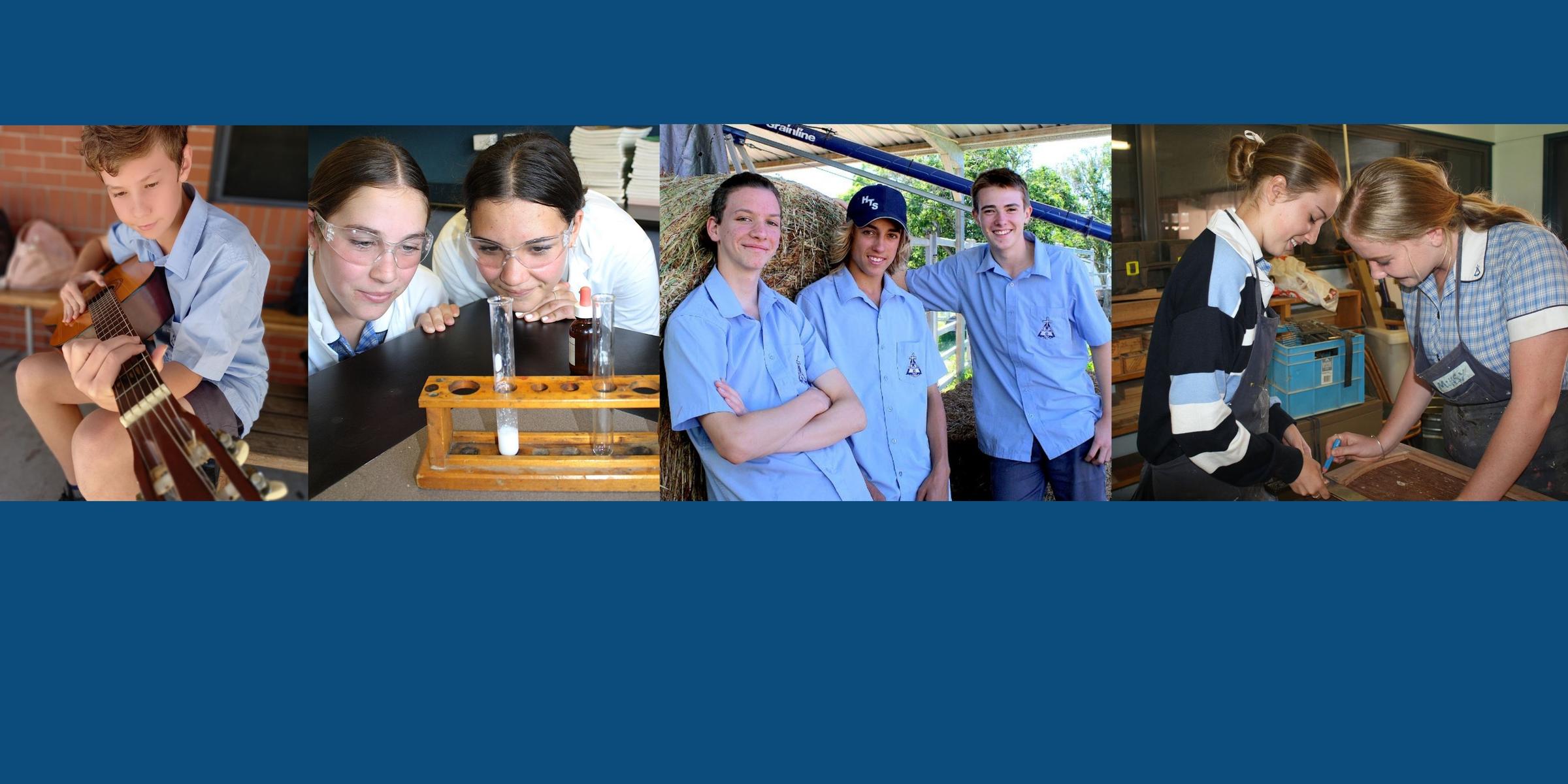
SECONDARY NEWS
From the Assistant Principal
Miss Kim Bailey
kbailey@arm.catholic.edu.au
U16s Rugby League Team
Good luck to the U16s rugby league team, who will travel to Coonabarabran on Wednesday to play Nyngan High School in the next round of the Small Schools' Rugby League competition. Mr Koch will drive the bus, and Mr White will coach the team.
Chess
The chess team will travel to Tamworth on Thursday for the next round of their competition. Good luck!
Congratulationsto Maryann Otieno, who represented Holy Trinity last week at the Legislative Council's Public Speaking Competition and Youth Forum. She was an excellent ambassador of our school.
Aerospace Camp
Several students successfully applied to join the Aerospace Camp in Inverell from 29 July to 1 August. Congratulations to Dom Kenny, Lachlan Tindall, Ryan Hill, and Jack McGavin.
Macintyre High School
Students attended 'My Futures' workshops yesterday at Macintyre High. They were able to select sessions to find out more about pathways for the future including the workforce, school-based apprenticeships, TAFE and university options. Year 10 were then able to talk to teachers about subject selections.
Inverell High School
Year 10 were given a calendar and assessment outline for Term 3. It is a busy term, and this may help their time management and planning. They were given a hard copy, and an electronic copy was emailed. The schedule was also posted to Compass for both Year 10 students and families.
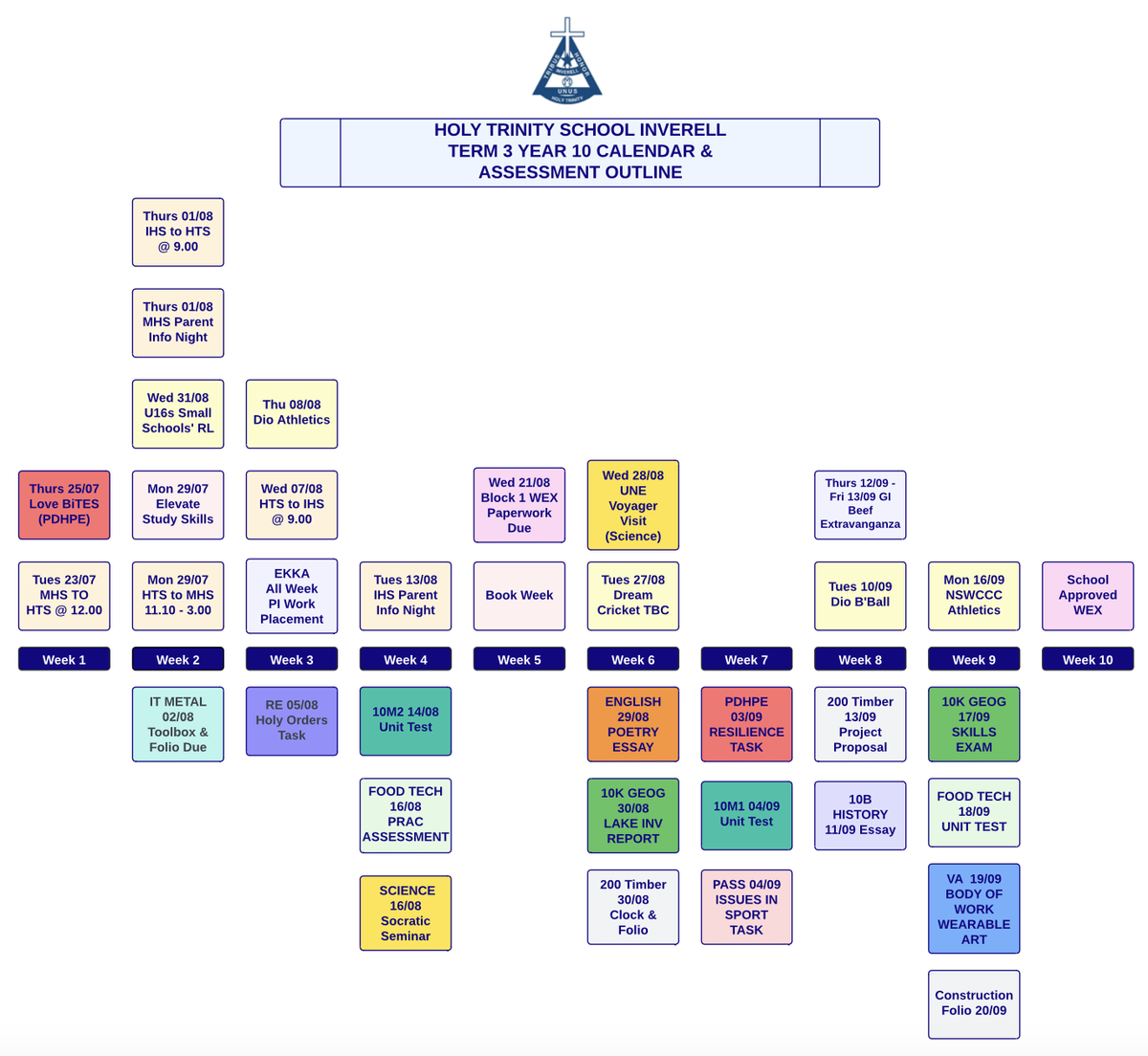

Thank you to those students who regularly adhere to the expectations regarding uniforms. However, some students are not in uniform. The following issues are causing concern at the moment:
Class teachers, Pastoral Care teachers, and the Leadership Team monitor uniforms regularly. If a student is not in the correct uniform, a dated note from the family advising when the uniform can be rectified is required. This note is to be given to the Pastoral Care teacher (Secondary) in the morning.
Where the school can assist, we will endeavour to help the student correct the uniform, e.g., provide an elastic hair band, provide a container for excess jewellery, and give a spare school outerwear garment.
Many lost property items are in the secondary staffroom. Please check if you are missing any clothing. All students are advised to label their belongings, allowing lost or misplaced items to be returned.
Last Friday, a uniform spot check was held, and Pastoral Care teachers and Stage Leaders will continue to follow up with students who are out of uniform.
Research indicates that:
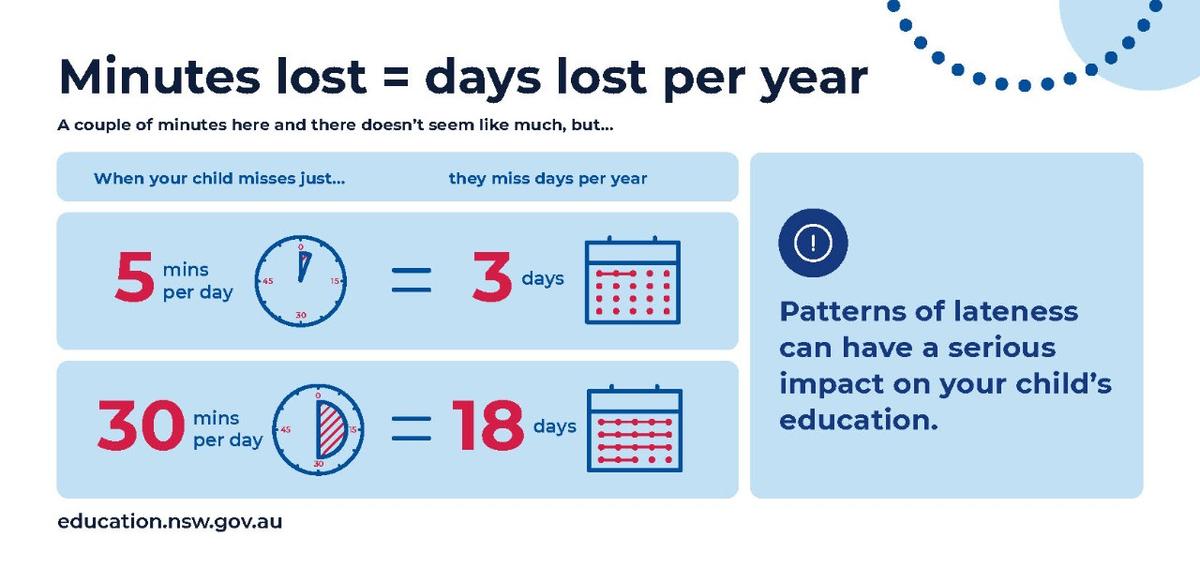

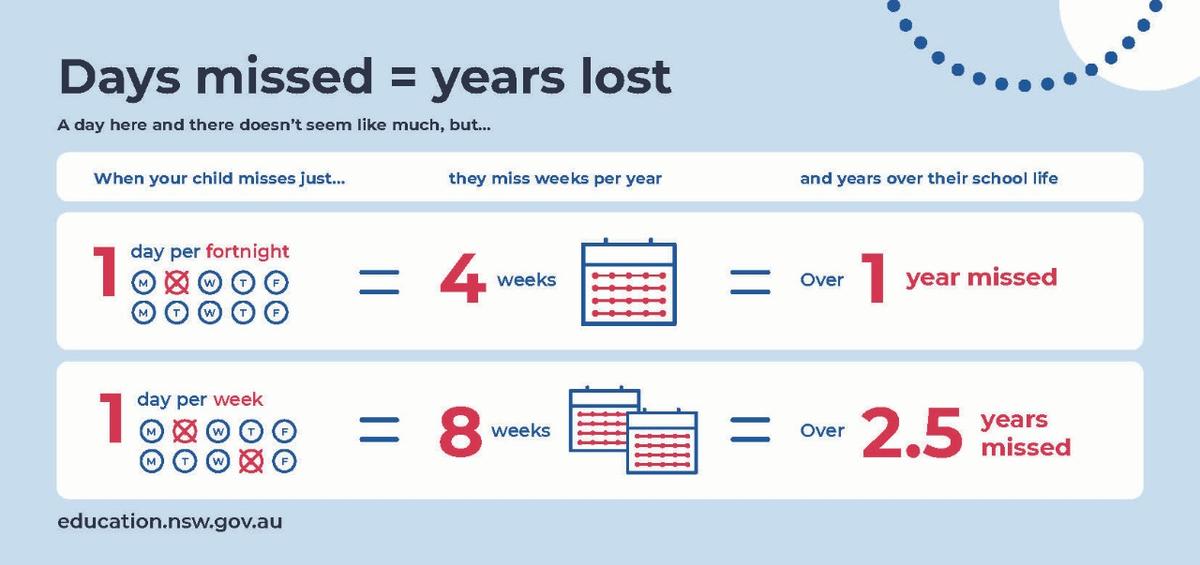

Procrastination is putting off a task that you know you have to do, even though you know that it will probably be worse for you in the long run. For example, when you procrastinate about starting an assignment, it doesn’t make the assignment go away or the deadline change; it just gives you less time to finish the work. To manage this, try the following:
Maybe you are an elite athlete? Or a dedicated performer? Or someone with many talents across many different areas and doesn’t want to give up any of your activities? No matter the reason, the bottom line is you are time-poor. You struggle to fit in everything you need to do for school, because of all of the other commitments in your life. The bad news is there is no magic solution that will easily fix this issue for you. You cannot create more time. The good news is that there are things you can do to make more efficient use of the time you have.
1. Don’t waste time in any of your classes at school. Make the most of every moment, so you have less to do at home, and set up a buddy system in case you miss any lessons.
2. Prune your activities and see if there is anything you can cut to reduce the pressure.
3. Make a timetable so you can schedule in everything that you need to do and want to do.
4. Use all little pockets of time. If you are waiting before training, then use that time to complete some homework.
5. Always prioritise before you start work to ensure that the most important and urgent work is completed first.
6. If you are too tired when you get home from training, it may be better to get to bed early, get up a bit earlier in the morning when you are fresh, and do your work then.
7. You may need to sacrifice an occasional lunchtime when you know you will be too busy that night.
8. Let go of perfectionism. It may not be possible to do everything as fully as you would like. Take smart shortcuts when you can.
9. Use any big blocks of time to tackle the time-consuming tasks that you haven’t had time for.
10. Some work like study notes, assessments or major works may be able to be left to the holidays.
Remember to be kind to yourself. It isn't easy to have enough time to excel in every aspect of your life! All you can do is make good choices with the time you have, make the most of that time, and still try to get the best results you can, given the time constraints you are working under.
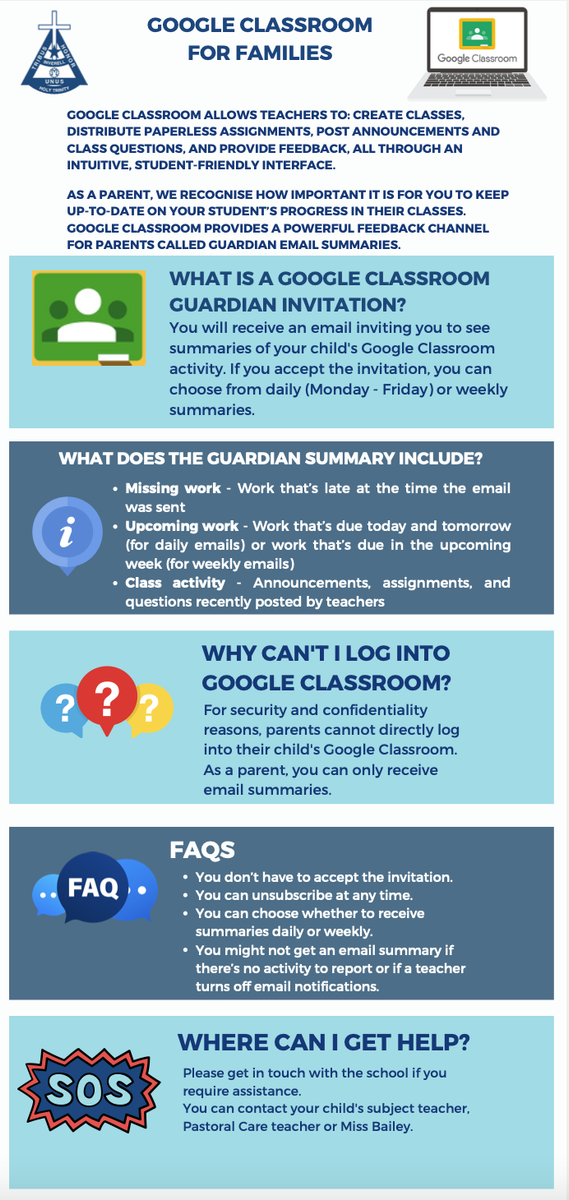

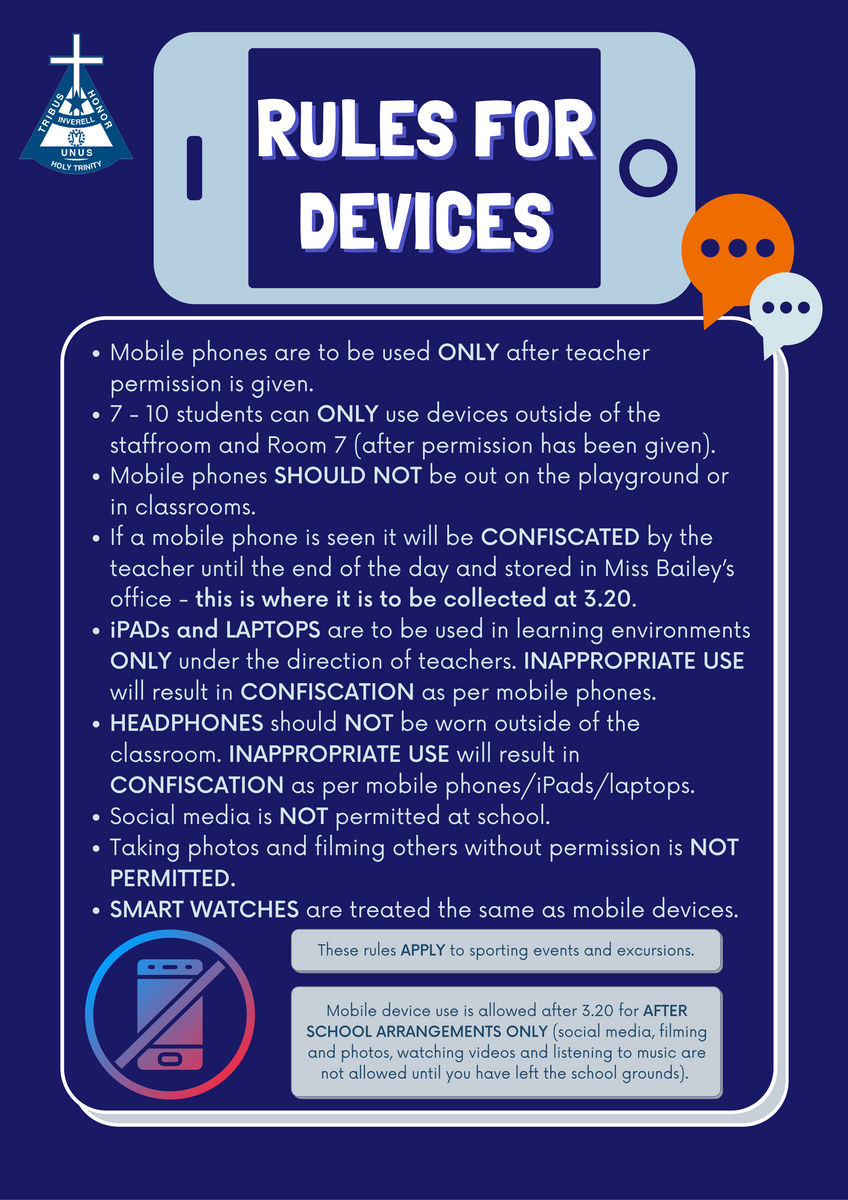

Students are not permitted to use their devices unless instructed by a teacher. This includes both the classroom and the playground. The students are aware of this policy and receive constant reminders in Pastoral Care and their teaching classes. There are also many posters displayed all around the school.
If a student needs to use their device, they must first seek permission from a teacher and use it in an area designated by the teacher. This is usually under their direct supervision or outside the Secondary staffroom.
If students cannot follow this policy, their phones are confiscated and placed securely in Miss Bailey's office, where they are collected by the student at the end of the school day.
Teachers record each time a device is confiscated. After it is confiscated for a second time, it remains at school until it can be collected by a parent or carer.
If you have any questions or concerns about your child's learning or wellbeing, please contact Miss Bailey, your child's Pastoral Care teacher or their subject teacher. We are only too happy to assist.
Year 7:
7E - Mr Peter Ehsman
7J – Mr Jack Jeffery
7K - Miss Kristina Majetic
7M – Mrs Veronica McCormick
Year 8:
8G - Mr Anthony Gaias
8M - Mrs Christine McLachlan
8T - Mrs Kathy Townsend
8W - Mr Sam White
Year 9:
9C – Miss Claudia Cush
9E - Mrs Angela East
9U - Mr Uebergang
Year 10:
10B - Miss Kim Bailey
10K - Mr David Koch
Students and parents are encouraged to approach the relevant Pastoral Care teacher if they need assistance.
Stage Leaders
Stage 4 - Mr Anthony Gaias
Stage 5 - Mrs Angela East
Miss Kim Bailey
Miss Claudia Cush
Mrs Claudia Dolbel
Mrs Angela East
Mr Peter Ehsman
Mr Anthony Gaias
Miss Alana Goldman
Mrs Mary-Jane Guest
Mrs Malynda Hiscock
Mr Jack Jeffery
Mr David Koch
Miss Kristina Majetic
Mrs Veronica McCormick
Ms Christine McLachlan
cmclachlan@arm.catholic.edu.au
Mr Matthew Pye
Mrs Jane Taylor
Mrs Katherine Townsend
Mr Blake Uebergang
Mrs Carrie Watchirs
Mr Sam White
Staff can be contacted directly using the email address above or via the Compass portal.